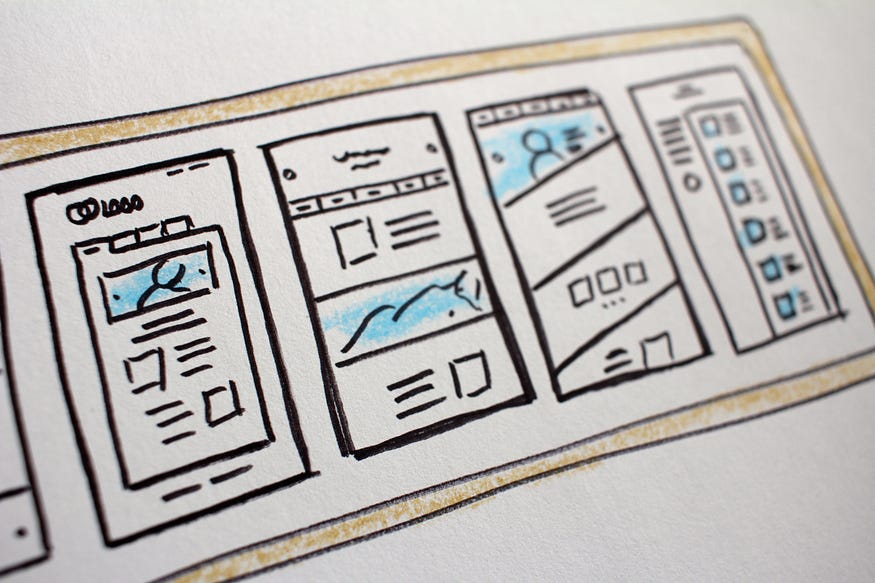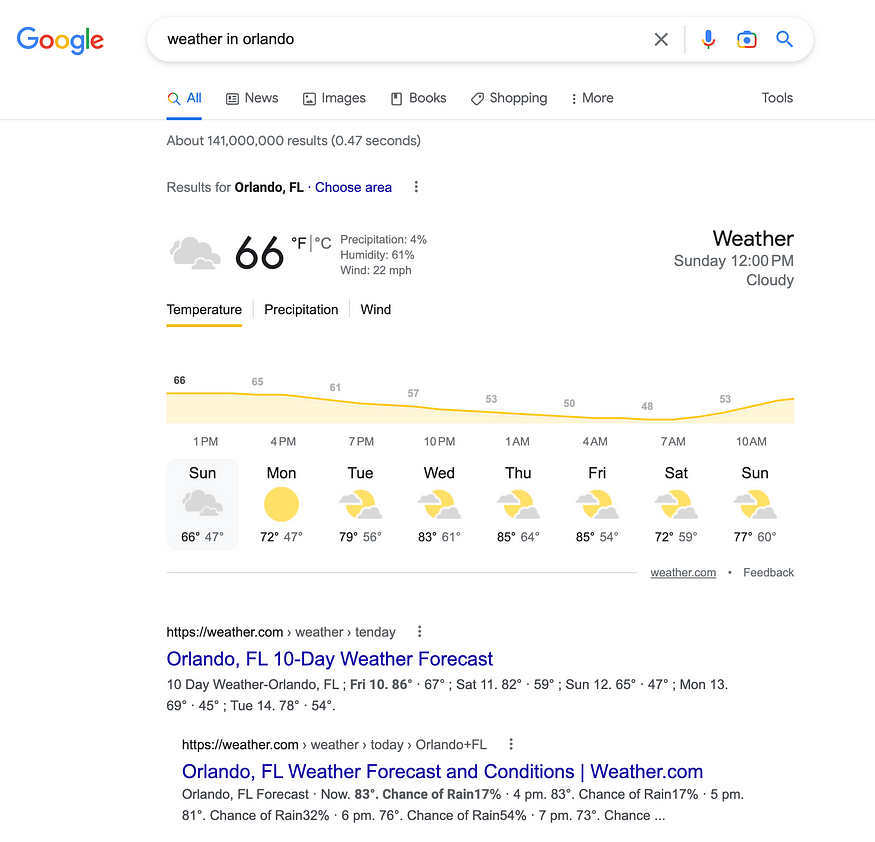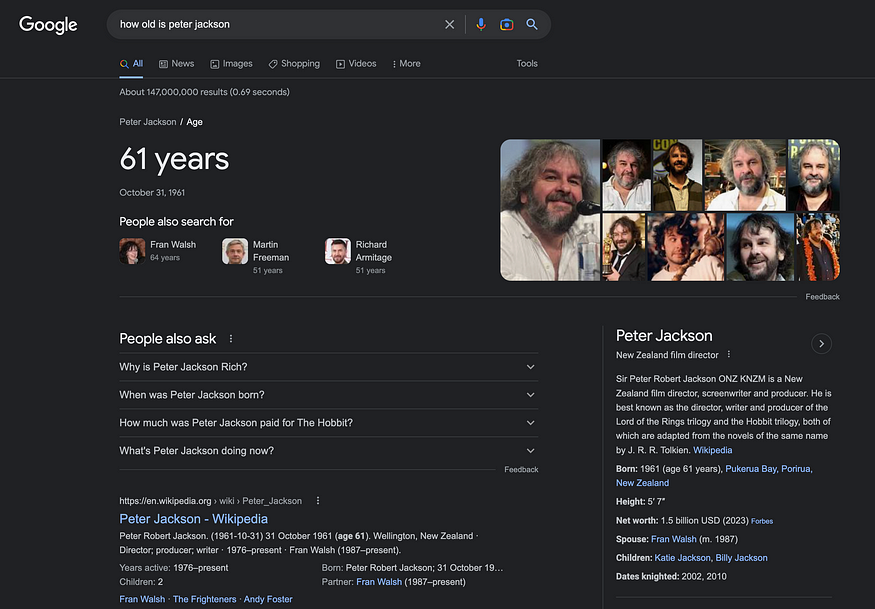
Search engines provide much of the traffic for many websites. My own included. The vast majority of the traffic I get to Side Hustle Road’s site is from Google, which is cool. And I know that other websites are the in the same boat.
But artificial intelligence is no longer on the horizon. It’s here, and it’s here in a big way. As AI tools like ChatGPT are integrated right into Google and Bing search, where will that leave the millions of websites that rely on organic search traffic?
Will they be able to survive?

What if people never leave the results page?
Every website owner wants his content to appear in search engines — but he wants that so that people will click it and continue on to his website. He wants that search engine to be the road that a user takes to get to his website — but he does want the user to get off the road eventually and visit.
But what happens to independent sites if Google and Bing users stay on the road and never stop in to visit? What if they get all the information they need right on the search engine results page (SERP) and don’t find a need to click through to a site?
It’s a concerning possibility, to be sure.
To some extent, this isn’t new. Google has, for years, sought to keep people engaged by providing snippets of information right from the SERP. For example, what if I were to search Google for “weather in orlando”? What do you think would show up?

This search result tells me the current temperature, shows me the precipitation, wind, and the forecast for the week. This result shows me all the information I want in a very easy to see and access format.
Sure, there is a result just below this from weather.com, but I probably have no need to click on it now, do I?
What if I want to know the age of Peter Jackson, the director of the Lord of the Rings movies?
image
This result is keeping me on Google without having to click a single result — and as a bonus, I can see even more interesting trivia in the right column, along with other questions that people ask.
It seems reasonable to assume that this feature resulted in a drop in traffic to some sites when it was first launched. Now, to be clear, it is better for your site’s content to be featured in a snippet like this than for info from another site to be featured, but it’s still not as good as a visit to your site. True?
When AI chat is fully integrated into search, I have no doubt the result will be the same. Google and Bing will become more useful, but many sites will notice a drop in traffic.
AI has to learn from something / someone
However useful and “intelligent” AI tools like ChatGPT become, they’ll still have to learn from an external source. This is why I don’t believe that they will ever truly replace independent content creators.
Artificial intelligence can never be true intelligence. It can mimic it and even give a convincing performance, but artificial intelligence is still just that — artificial.
AI models have to be trained with data — huge, truck loads of data. But that data can’t come from a void. It has to have been created by flesh and blood humans like you and me.
If humans stopped creating content, what would the AI have to learn from?
The problem of incorrect search results
As many of us have found, tools like ChatGPT aren’t always accurate — and can even boldly proclaim incorrect information.
What, if anything, will Google do about wrong answers generated by AI? What can Google do? Will there be some sort of check in place to verify answers given by the AI before they’re passed on to a user? Does the AI need an AI to babysit it and make sure it plays nice?
I don’t know.
But this does expose one of the endemic problems with artificial intelligence. It can only act based on the data on which it was trained. And if the information it takes in is wrong, then the answers it spits out will be wrong. As has been said before, it’s like a game of technological telephone and can only serve to perpetuate false information and bad advice.
Sure, that’s not to say that everything it spits out is wrong. But if even 0.01% of its answers aren’t right — or entirely right — that’s still a huge problem.
If the statistics are right, Google processes ~40,000 searches every SECOND. That’s over 3.7 BILLION per day.
If we assume that 0.01% of answers are incorrect (which is only an assumption — it could be higher or lower), that would be 4 wrong answers every second or 370,000 wrong AI-generated answers every day.
This is, of course, based on assumed math only. These numbers could be much higher or much lower.
What will adaptation to the new AI paradigm look like?
All the questions and problems aside, it’s no longer a question of if AI is coming or really even a matter of when. It’s here, and it’s poised to disrupt a huge chunk of nearly every industry — in some good and very bad ways. But we don’t have the luxury of negotiating with the fact of its existence. We can either adapt or become irrelevant.
That’s the situation in which we find ourselves today.
The question is, will we adapt and come out the other side stronger and more efficient, or will we be like deer in the headlights — frozen and unable to move?
There’s no question that AI will impact content creators. It can be a huge help, but it can also be something of a threat. Will AI make us irrelevant entirely? Or will we be able to adapt and thrive?
And if the latter, what will that adaptation look like? I think this is a good start:
- Learn about the AI tools available. New ones are popping up every day. Some are better and more powerful — and more useful — than others. Understand what they can and can’t do and at least become comfortable with their potential uses. That’s not to say you must use them, of course, but you need to be familiar with the tool landscape.
- Resolve to produce high-quality, unique content that provides value. The value you provide is part of your brand. You want people to come to know you as someone who provides helpful information, tips, tools, resources and tricks. Don’t compromise that.
- Focus on creating a brand — not just being an information parrot. People follow brands. They can get information anywhere. But people will actively pursue and follow brands they know and trust. The best time to start building your brand is yesterday. The second best time is now.
If you’re a content creator — any kind of content creator — you need to focus on standing out in a unique way. That, I believe, is how we’ll win going forward.
Will ChatGPT kill independent websites?
Personally, I don’t think so. Will the integration of AI chatbots into Google and Bing have an impact on search? Sure. No doubt. But this isn’t the first time we’ve been told that a technological innovation would mean the death of this or that industry.
Years ago, at the dawn of recorded music, people warned that recorded music would mean the death of the live music industry. And did it? No. On the contrary, recorded music has allowed more people in more circumstances to enjoy music they otherwise would not have been able to — and it’s increased the reach of many musicians who have been able to reach audiences far outside their local areas.
How is that not a good thing?
Similarly, I believe artificial intelligence will cause a shift how the Internet works, but the name of the game has always been adaptation. Change is inevitable. What we do in the face of it will either make or break our brands.
Personally, I choose to be optimistic and think that ChatGPT and AI-based search will actually serve to enhance the user experience in the long term and even help those content creators who learn to leverage it.
What do you think? Are you worried about AI or are you embracing it with open arms?